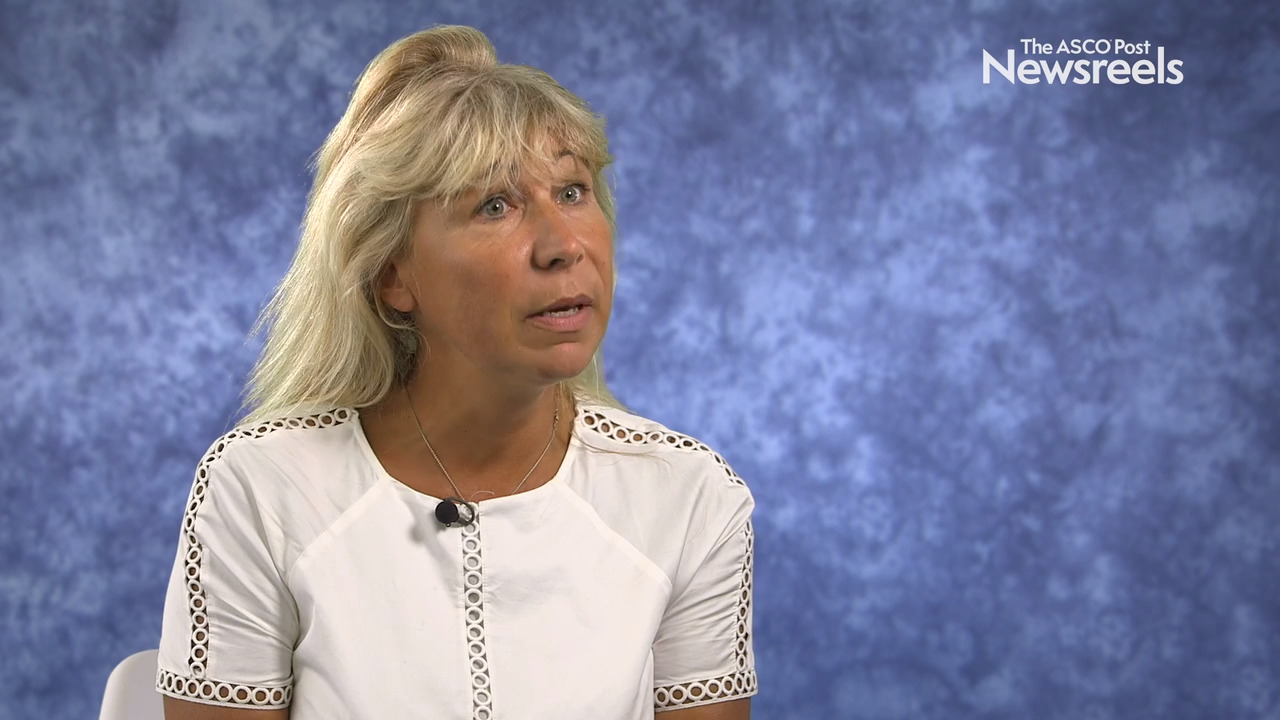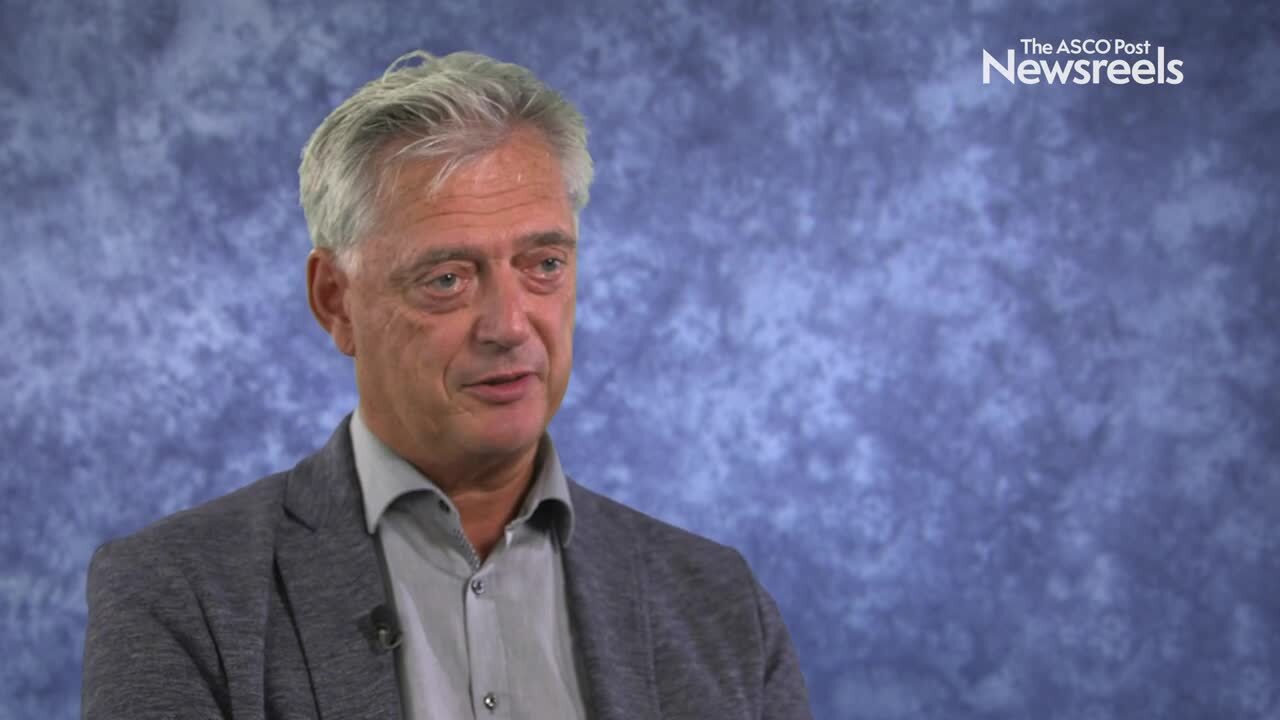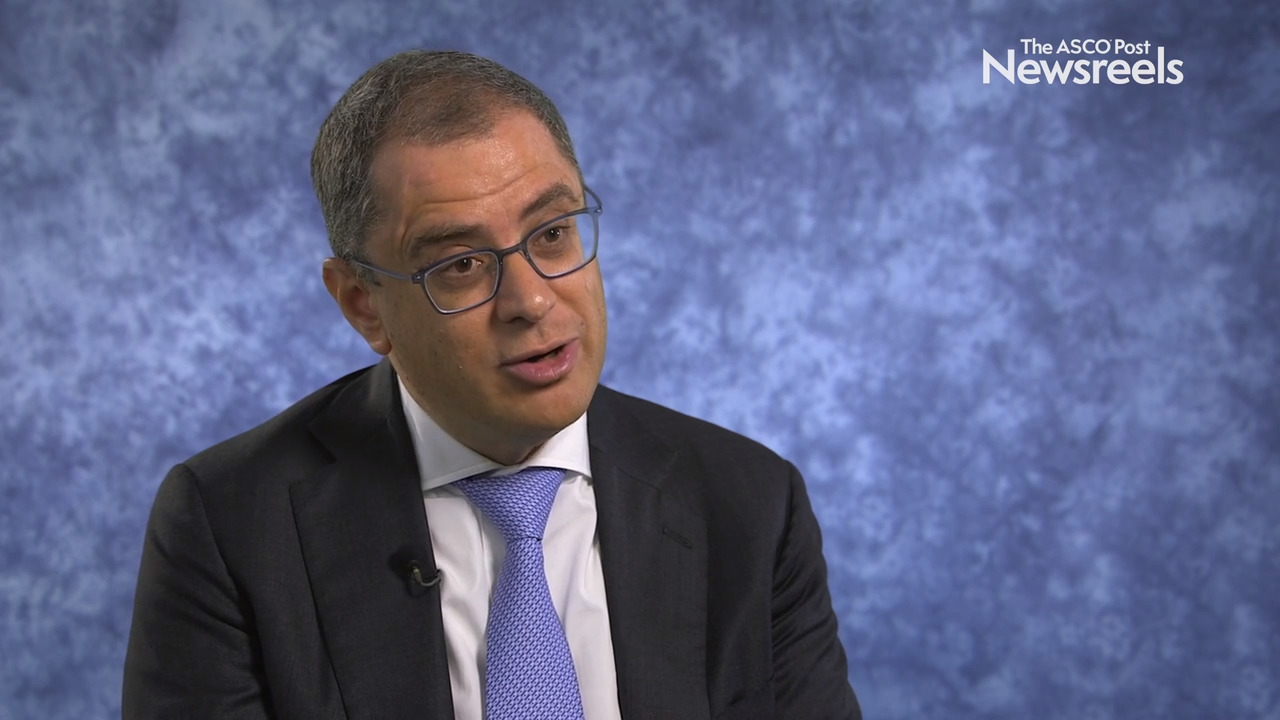Laura Q.M. Chow, MD, on Metastatic NSCLC: Results of the ASCEND-7 Trial on Ceritinib
ESMO 2019 Congress
Laura Q.M. Chow, MD, of the University of Texas at Austin, Dell Medical School and LIVESTRONG Cancer Institutes, discusses phase II study findings that showed the ALK inhibitor ceritinib achieved durable intracranial response in patients with ALK-positive non–small cell lung cancer that has spread to the brain (Abstract 1478O).
Isabelle Ray-Coquard, MD, PhD, on Ovarian Cancer: Olaparib Plus Bevacizumab
Isabelle Laure Ray-Coquard, MD, PhD, of the Centre Leon Bérard, discusses phase III study findings in patients with newly diagnosed, advanced ovarian cancer who received olaparib plus first-line bevacizumab maintenance treatment. Compared with placebo plus bevacizumab, olaparib improved progression-free survival, with the greatest benefit in women with BRCA mutations and positive homologous recombination deficiency status (Abstract LBA2).
Sungjune Kim, MD, PhD, of the H. Lee Moffitt Cancer Center and Research Institute, discusses phase II study findings on the safety and tolerability of nivolumab/ipilimumab plus stereotactic body radiation therapy (Abstract 1321P).
Ronald de Wit, MD, PhD, of the University Medical Center Rotterdam, discusses study findings which showed that cabazitaxel improved radiographic progression-free survival as well as overall survival in patients with metastatic castration-resistant prostate cancer (Abstract LBA13).
Suresh S. Ramalingam, MD, of Emory University, discusses results from the final overall survival analysis of the phase III FLAURA trial in EGFR-mutated advanced non–small cell lung cancer, which showed that osimertinib provided a survival benefit vs comparator EGFR tyrosine kinase inhibitor therapy in the first-line setting (Abstract LBA5).
Ghassan K. Abou-Alfa, MD, MBA, of Memorial Sloan Kettering Cancer Center, discusses phase III study findings showing improvement in progression-free survival among patients with an isocitrate dehydrogenase 1 (IDH1) mutation who received ivosidenib compared with a similar group that received placebo (Abstract LBA10).





